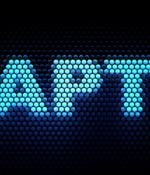Security News

Nuclear-armed North Korea is advancing on the front lines of cyberwarfare, analysts say, stealing billions of dollars and presenting a clearer and more present danger than its banned weapons programmes. Pyongyang is under multiple international sanctions over its atomic bomb and ballistic missile programmes, which have seen rapid progress under North Korean leader Kim Jong Un. But while the world's diplomatic focus has been on its nuclear ambitions, the North has been quietly and steadily building up its cyber capabilities, and analysts say its army of thousands of well-trained hackers are proving to be just as dangerous.

The Republic of Korea took two bold steps into the future on Tuesday, by announcing that the last of its 2G networks will go offline in June and that it will initiate large-scale adoption of communications protected by quantum encryption. The quantum tests will build on demos conducted in 2020, but this time South Korea's government hopes to involve multiple industries and to educate them on the benefits of the tech and how to adopt it.

State-sponsored hackers affiliated with North Korea have been behind a slew of attacks on cryptocurrency exchanges over the past three years, new evidence has revealed. Attributing the attack with "Medium-high" likelihood to the Lazarus Group, researchers from Israeli cybersecurity firm ClearSky said the campaign, dubbed "CryptoCore," targeted crypto exchanges in Israel, Japan, Europe, and the U.S., resulting in the theft of millions of dollars worth of virtual currencies.

South Korea's Ministry of Trade, Energy and Infrastructure has ordered a review of the cybersecurity preparedness of the nation's energy infrastructure. Minister of Trade, Industry and Energy Moon Seung-wook convened a meeting yesterday, saying it was needed considering the ransomware attack on the Colonial Pipeline that shuttered one of the USA's main oil transport facilities.

Excellent New Yorker article on North Korea’s offensive cyber capabilities.

North Korean hackers tried to break into the computer systems of pharmaceutical giant Pfizer in a search for information on a coronavirus vaccine and treatment technology, South Korea's spy agency said Tuesday, according to reports. The impoverished, nuclear-armed North has been under self-imposed isolation since closing its borders in January last year to try to protect itself from the virus that first emerged in neighbouring China and has gone on to sweep the world, killing more than two million people.

North Korea has modernized its nuclear weapons and ballistic missiles by flaunting United Nations sanctions, using cyberattacks to help finance its programs and continuing to seek material and technology overseas for its arsenal, U.N. experts said. The panel recommended that the Security Council impose sanctions on four North Korean men: Choe Song Chol, Im Song Sun, Pak Hwa Song, and Hwang Kil Su. The Security Council has imposed increasingly tough sanctions on North Korea since its first test explosion of a nuclear device in 2006.

Hackers linked to North Korea are targeting security researchers with an elaborate social-engineering campaign that sets up trusted relationships with them - and then infects their organizations' systems with custom backdoor malware. The effort includes attackers going so far as to set up their own research blog, multiple Twitter profiles and other social-media accounts in order to look like legitimate security researchers themselves, according to a blog post by TAG's Adam Weidermann.

North Korea's hackers homed in on specific infosec researchers and infected their systems with a backdoor after luring them to a suspicious website, Google revealed on Monday. "The researchers have followed a link on Twitter to a write-up hosted on blog.br0vvnn[.]io, and shortly thereafter, a malicious service was installed on the researcher's system and an in-memory backdoor would begin beaconing to an actor-owned command and control server," said Googler Adam Weidemann.

A North Korean hacking group has been found deploying the RokRat Trojan in a new spear-phishing campaign targeting the South Korean government. Attributing the attack to APT37, Malwarebytes said it identified a malicious document last December that, when opened, executes a macro in memory to install the aforementioned remote access tool.